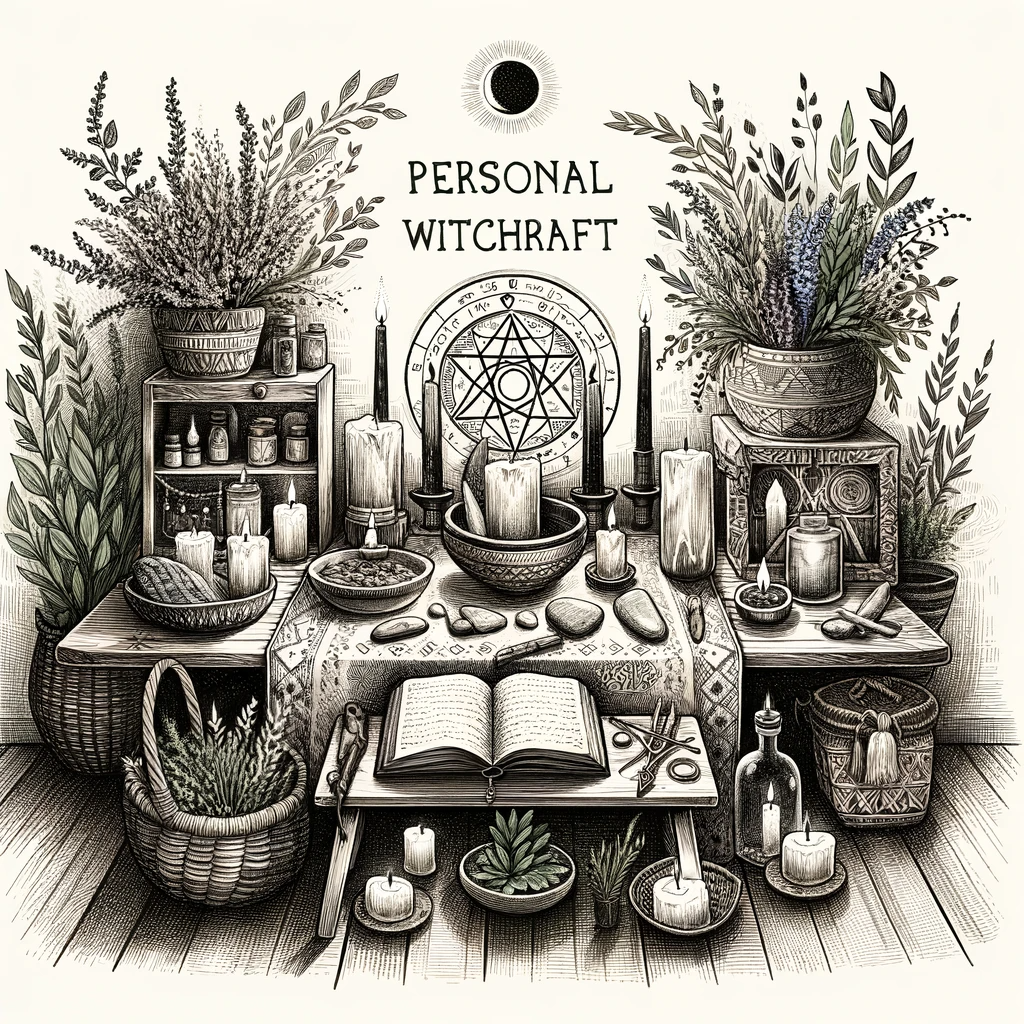Shadow work isn’t as mystical as some might think. It’s not about conjuring spirits or casting spells. Instead, it’s a psychological practice developed by Carl Jung to help people understand and heal their inner selves.
But recently, it’s been co-opted by the witchcraft and occult communities, causing some confusion around the practice. I’m going to try to clear up what shadow work really is and why it’s important to approach it correctly.
The Origins of Shadow Work
When you hear “shadow work,” you might imagine something witchy. It definitely sounds that way. But the truth is, it’s rooted in psychology. Carl Jung, a Swiss psychiatrist, introduced the concept.
He believed that everyone has a “shadow” side—parts of ourselves that we hide or deny. By confronting these shadows, we can better understand our true selves and heal from past traumas.
Jung developed shadow work to help people deal with their darker aspects. It involves acknowledging and integrating these hidden parts into our conscious selves. The goal is to achieve a more balanced and whole personality. It’s a therapeutic process aimed at self-discovery and healing, not a mystical practice.
Shadow Work and Witchcraft
Recently, shadow work has found its way into witchcraft and occult practices. Some practitioners believe it fits naturally with their spiritual work. However, this is a modern development, not a traditional aspect of witchcraft. It’s important to remember that shadow work’s origins are strictly psychological.
While incorporating shadow work into witchcraft isn’t inherently harmful, it’s crucial to understand its true nature. It wasn’t developed for magick, but rather for psychological healing. Misinformation can lead people to approach shadow work in unsafe ways, thinking it’s something more mystical than it really is.
The Importance of Professional Guidance
Attempting shadow work without proper guidance can be risky. Since it involves delving into suppressed emotions and past traumas, it can bring up intense and painful memories. This is why it’s wise to work with a therapist who is experienced in shadow work. They can provide the support and tools needed to navigate this challenging process.
Without professional help, you might uncover more than you’re prepared to handle (especially if you’re doing shadow work properly). A therapist can help you process these feelings safely and effectively. Trying to do it alone, or in a group that doesn’t fully understand the psychological aspects, can be overwhelming and even damaging.
Engaging in shadow work without proper preparation can be emotionally and psychologically risky. When you dig into your subconscious, you might uncover traumatic memories or intense emotions that you’re not ready to face. This can lead to feelings of overwhelm, anxiety, or depression.
I’ve heard stories of people who tried shadow work on their own and ended up feeling worse because they couldn’t handle what they uncovered. This is why professional support is so important. A therapist can help you process these emotions and ensure you’re not harmed by the process.
Addressing Misconceptions
One of the biggest misconceptions about shadow work is that it’s mystical or otherworldly. In reality, it’s much like other therapeutic practices, such as journaling or meditation. It’s a way to explore and understand your inner self, not a magickal ritual.
I’ve seen people in witchcraft communities talk about shadow work as if it’s something engrained in the practice. But really, it’s about confronting your own psyche. By understanding this, you can approach shadow work more realistically and safely. It’s about healing and self-discovery, which are definitely important (especially when it comes to your intuition) but aren’t inherently witchcraft.
By promoting education, we can help people approach shadow work safely and effectively. Misinformation can lead to harmful practices, so it’s crucial to advocate for a clear understanding of what shadow work really is. Let’s work together to dispel myths and promote safe, informed practices.
Practical Tips for Those Interested in Shadow Work
If you’re interested in shadow work, start by educating yourself about its psychological foundations. Read books and articles by Carl Jung and other experts in the field.
Approach it with a clear understanding that it’s about self-discovery and healing, not magic.
Consider seeking a therapist who is experienced in shadow work. They can guide you through the process safely. If you’re not ready for therapy, start with journaling or other reflective practices. Write down your thoughts and feelings, and be honest with yourself about what you uncover.
Understanding shadow work’s true origins and purpose is crucial for anyone interested in this practice. It’s a powerful tool for self-discovery and healing, but it needs to be approached with care and professional support. Let’s continue the conversation and promote accurate information to keep everyone safe and informed.















